Amherst council approves mandatory rental inspection program
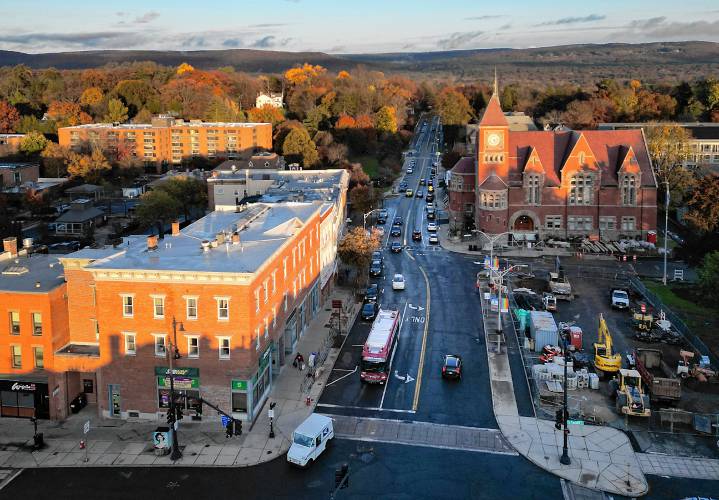
Downtown Amherst looking down Main Street toward Town Hall. STAFF PHOTO/DAN LITTLE
| Published: 04-09-2024 3:15 PM |
AMHERST — The town is moving ahead with a revised residential rental property bylaw that will replace the current complaint-driven inspection system with a requirement that all rental homes be inspected once every five years, despite objections from a landlords group, some tenants and a handful of town councilors.
The Town Council voted 8-4 on Monday, with one councilor absent, to approve the overhaul of the rental property bylaw proposed by the council’s Community Resources Committee and Building Commissioner Rob Morra. The new rules go into effect in 14 days, but the five-year inspection cycle won’t officially start until summer of 2025.
“This is an issue of public health and safety — it’s an issue of quality of life,” said District 3 Councilor George Ryan, who voted in favor of the bylaw. “Certainly in my conversations with inspectors, and in my listening to the work of this committee over the last two years or more, there’s a definite need to address this issue.”
Ryan was joined in support of the revised bylaw by District 2 Councilor Pat De Angelis, Council President Lynn Griesemer, District 4 Councilors Pamela Rooney and Jennifer Taub, District 5 Councilor Ana Devlin Gauthier, and At Large Councilors Mandi Jo Hanneke and Andy Steinberg.
Voting against were District 1 Councilors Cathy Schoen and Freke Ette, District 5 Councilor Bob Hegner and At Large Councilor Ellisha Walker. District 3 Councilor Hala Lord was absent.
The program is expected to cost $477,580 annually when fully implemented, including a lead inspector, two inspectors and a program assistant, as well as other associated expenses such as vehicle allowance, legal, and printing and advertising. All units will be inspected at least once every five years and each will have to get a permit or face a penalty. Management plans for trash removal, parking and maintenance of grounds will be required, along with a tenant information sheet, with contact information, and a requirement of local management.
Two-thirds of the $100,000 set aside annually for safe and healthy neighborhood initiatives in the strategic partnership with the University of Massachusetts will be applied to the rental permitting program. The remaining costs will come from fees collected, including $100 per year for all owner-occupied rentals; $150 per year, plus $100 per additional unit, and up to $1,050, for all other rentals; and $150 per unit inspection fee.
Since the original bylaw was created following a Town Meeting vote in 2013, property owners have done a self-certification checklist to show their homes are fit for human habitation, and inspections are only triggered by complaints.
Article continues after...
Yesterday's Most Read Articles
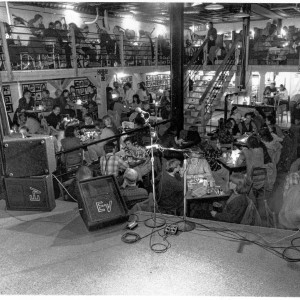 The Iron Horse rides again: The storied Northampton club will reopen at last, May 15
The Iron Horse rides again: The storied Northampton club will reopen at last, May 15
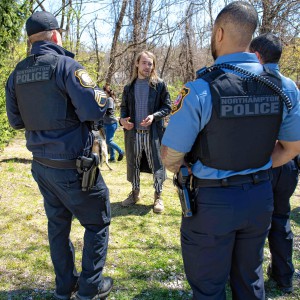 Homeless camp in Northampton ordered to disperse
Homeless camp in Northampton ordered to disperse
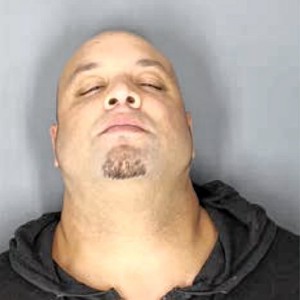 Authorities ID victim in Greenfield slaying
Authorities ID victim in Greenfield slaying
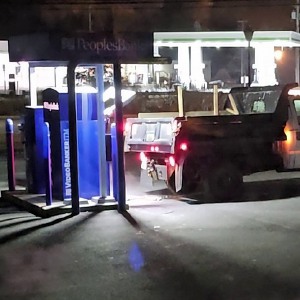 $100,000 theft: Granby Police seek help in ID’ing 3 who used dump truck to steal cash from ATM
$100,000 theft: Granby Police seek help in ID’ing 3 who used dump truck to steal cash from ATM
 UMass football: Spring Game closes one chapter for Minutemen, 2024 season fast approaching
UMass football: Spring Game closes one chapter for Minutemen, 2024 season fast approaching
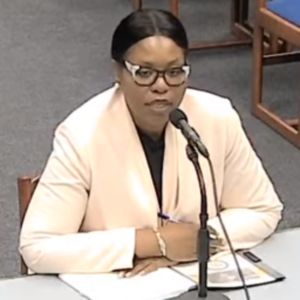 Final pick for Amherst regional superintendent, from Virgin Islands, aims to ‘lead with love’
Final pick for Amherst regional superintendent, from Virgin Islands, aims to ‘lead with love’
Current estimates show that Amherst has 1,258 rental properties, containing 5,134 residential units, including single-family homes, mixed-use buildings and apartment complexes. But Morra said he has found more than 100 rental properties that should have had permits but didn’t.
Morra said the experience for the past decade shows that self-certification isn’t enough, as the number of permits and registered properties are dropping, indicating there is less compliance.
At the April 1 council meeting, Morra said the first year will be a phase-in and rollout, having already bought new permitting and licensing software.
As he continues to staff up, one of the two inspectors will be hired this spring, helping to build an inspections checklist and to educate landlords in advance of a second inspector being hired and inspections starting in early 2025. Around 100 inspections are expected to be done before July 1, 2025, which will mark the beginning of the 500 inspections that will need to be done annually.
“This is an inspection program accomplished over a five-year period,” Morra said. “The goal would be to complete the first five-year cycle by July of 2030.”
Properties with 10 or more units will have 10% of units inspected, rather than 20%, and certain properties that go under inspection during sales or through federal or state programs could have their inspections waived, though Morra cautions that those inspections may not meet the town standards.
There also will be an educational component for tenants, offering them support and guidance about the conditions they should expect in a rental unit, and a more comprehensive appeals process that will have permit denials referred to the Board of License Commissioners.
Taub said the program will determine how many rentals are not code compliant and don’t meet health and safety standards, comparing it to inspection programs in Boston, Salem and Lowell. “This is in many cities and towns in Massachusetts. Inspections are just a normal part of what happens to rental units,” Taub said.
“We need a more rigorous system, and this bylaw is doing that,” said Devlin Gauthier said, adding that landlords are in a for-profit industry and any rent increases shouldn’t be blamed on the program. “The reality is there are many other reasons the rent is going up.”
Those who opposed the revised bylaw, though, cited the costs to renters.
“I think it’s just overkill, for a problem that to my knowledge has not really been defined,” Hegner said. “We don’t know how many rental properties really are problems, and we don’t know where they are, and until we know it’s very difficult for me to support a program that’s basically built on raising rents on tenants.”
Schoen said she would have preferred a more targeted approach, rather than a new mini bureaucracy, and had hoped a revised nuisance house bylaw would come first to deal with trash, vehicles and noise that would trigger an inspection.
“I see no reason that we even have the potential of inspecting places that are already being inspected by the state government or the federal government — I would just make them exempt,” Schoen said.
Walker said she understands that many rentals not in good shape, but she worries about the added burden for renters.
“As a body with a majority of homeowners, I think it’s important to understand the impact that will have on the people most affected by this change,” Walker said.
Renters are being told their rents will go up, she said, and that town staff will be able to do inspections at any time. “People are really worried about this,” Walker said.
Steinberg said he appreciates that tenants have a right to decline an inspection under the revised bylaw, so long as no other problem is evident. Morra said protocols will be in place to deal with tenants resistant to inspections.
Rooney said no landlord or property owner would be shut down from renting unless their building or unit was found to be in deplorable condition and the owner didn’t undertake corrective action.
The Amherst Landlords Association, which has objected to the new program, sent a letter to the Town Council warning about potential legal action, which it has threatened over the course of the bylaw’s development.
“After reviewing the most recent version of the proposed bylaw, our attorneys are advising us not to register our properties as conditions of the bylaw are a violation of the state and federal laws and could subject us to lawsuits by our residents,” the letter reads. “We recommend you do not pass this bylaw and allow the town staff to use the existing system to address concerns they may have and avoid expensive time-consuming litigation that will surely follow if the bylaw is passed.”
During public comment, Thomas Crossman, a local property owner and property manager, said this will be an expensive program for landlords and property managers, and will increase costs to renters.
Arash Hashemi of South Amherst called the creation of the rental inspection program a vanity project by town officials that isn’t needed, especially when Amherst’s roads are falling into disrepair.
“I’m curious to know just why we believe the town has the authority to provide others with recommendations and corrective actions when its own behavior, in managing an area that is most fundamental to its citizens and the most basic area of responsibility, has been neglected for years,” Hashemi said.
Scott Merzbach can be reached at smerzbach@gazettenet.com.

 Authorities ID victim in Greenfield slaying
Authorities ID victim in Greenfield slaying  Federal probe targets UMass response to anti-Arab incidents
Federal probe targets UMass response to anti-Arab incidents Locking up carbon for good: Easthampton inventor’s CO2 removal system turns biomass into biochar
Locking up carbon for good: Easthampton inventor’s CO2 removal system turns biomass into biochar William Strickland, a longtime civil rights activist, scholar and friend of Malcolm X, has died
William Strickland, a longtime civil rights activist, scholar and friend of Malcolm X, has died
